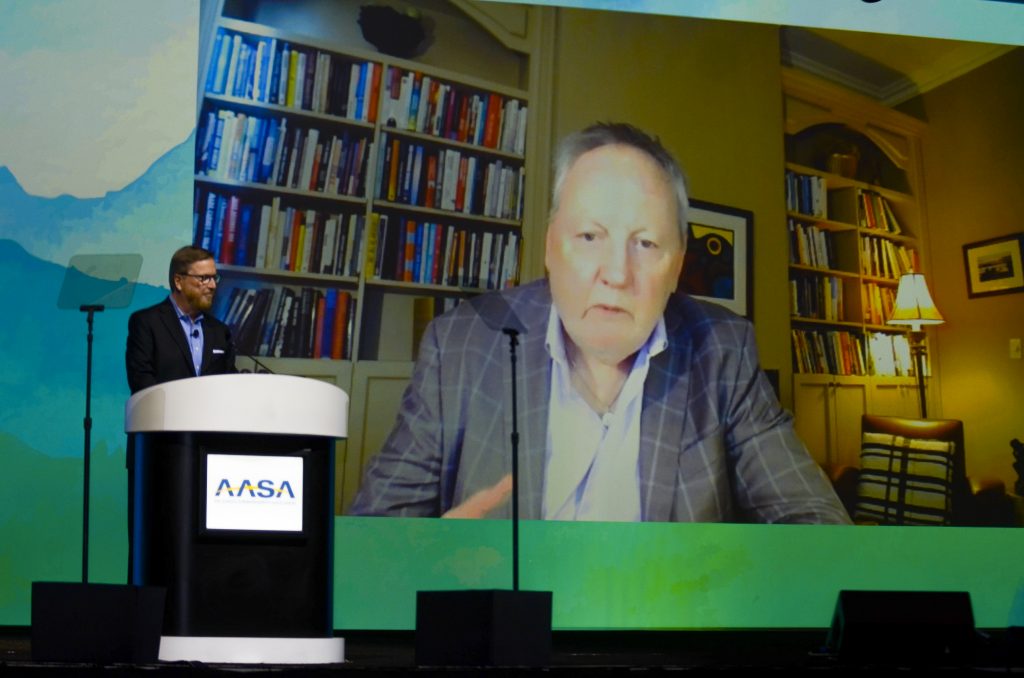Start with making sure students know they are loved. That was the advice of two authors who have studied high performing school districts.
Mark Edwards and Michael Fullan, co-authors of the book Spirit Work and the Science of Collaboration, spoke at the 3rd General Session at AASA’s national conference on Saturday in Nashville. Edwards, a former national superintendent of the year while leading the schools in Mooresville, N.C., spoke in person while Fullan, a professor emeritus at the University of Toronto, spoke via video link.
They cited innovations in eight school districts of varying size that changed their school cultures in positive ways. An example of this “spirit work” is the placement of photos of students in school buildings in the Ithaca City School District in New York, Edwards said.
“It sounds simple, but it’s profound” in its impact, he said.
Another lesson, Edwards said, is that “student voice is essential.” For instance, students in Ithaca with individualized education plans can be voting members of their IEP committees.
Edwards said one girl who participated in her own IEP committee wondered aloud what other meetings have affected the trajectory of her education and whether she could have also participated in those sessions.
The optimism that Edwards and Fullan exuded was tempered by expressions of anxiety about the current state of public education and the challenges confronting superintendents.
The profession is “not sustainable” for new superintendents, Fullan said.
He noted that four of eight superintendents featured in their book had left their school districts for other opportunities. He questioned what kind of longevity can be expected among superintendents in coming years.
Fullan added that he had just authored an article, forthcoming in Education Week, about reasons to be optimistic about public education. But he said he could easily have written an article arguing the exact opposite.
How schools evolve in the wake of the pandemic could be transformative – or not, he said.
“This is a fork in the road,” he said.
(Eric Randall is senior editor with AASA’s Conference Daily Online and editor of On Board at the New York State School Boards Association in Latham, N.Y.)

